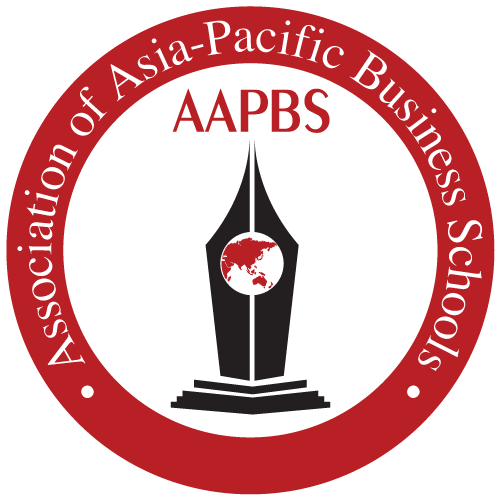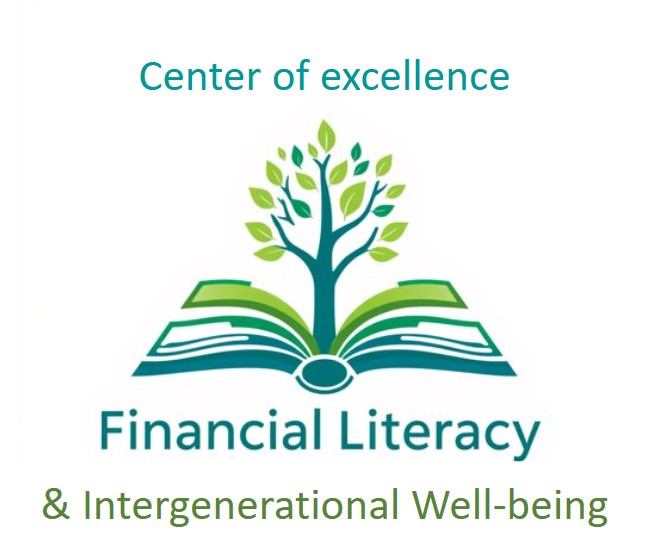Determining Factors of Vocational Students' Entrepreneurial Intentions in Indonesia
 Abstract Views:
333 times
Abstract Views:
333 times
 PDF Downloads:
299 times
PDF Downloads:
299 times
Abstract
Pupose: This study aims to examined: the influence of self efficacy on the entrepreneurial intention of college students and the influence of family support on the entrepreneurial intention of college student.
Method: The population of the study was students who have participated in the college level entrepreneurship development program in 2022. The sample was 239 students using the Simple Random Sampling technique. Data collection techniques used questionnaires and documentation. Data analysis method used SEM-PLS (Structural Equation Modeling-Partial Least Square) with the SmartPLS program.
Result: The results of the study showed that there was a positive and significant influence of self efficacy on the entrepreneurial intention of college student and there was a positive and significant influence of family support on the entrepreneurial intention of college students
Downloads
References
Khotimah, S., Mayasari, V., & Sunarko, B. (2018). Pengaruh entrepreneurship characteristic, Dan Self Efficacy terhadap entrepreneurship intensity (studi Pada Mahasiswa fakultas Ekonomi Dan Bisnis Universitas Jenderal Soedirman). Equilibria Pendidikan: Jurnal Ilmiah Pendidikan Ekonomi, 2(2), 44. https://doi.org/10.26877/ep.v2i2.2110
Kurjono, K., Kurniawan, A., & Rasto, R. (2020). Intensi Berwirausaha Melalui model the Entrepreneurial Event. Jurnal Manajerial, 19(1), 53–66. https://doi.org/10.17509/manajerial.v19i1.20710
Kurniawati, W., & Marlena, N. (2018). The Influence of Self Efficacy and Adversity Quotient: How is the Vocational Student Entrepreneurial Intention? Jurnal Pendidikan Bisnis Dan Manajemen, 4(2), 96–107. https://doi.org/10.17977/um003v4i22018p096.
McGee, J. E., Peterson, M., Mueller, S. L., & Seqeuira, J. M. (2009). Entrepreneurial Self-Efficacy: Refining the Measure. Entrepreneurship Theory and Practice, 33(4), 965-988. doi:https://doi.org/10.1111/j.1540-6520.2009.00304.x
Naiborhu, I. K., & Susanti, S. (2021). Pengaruh pendidikan Kewirausahaan, Marketplace, Kecerdasan adversitas Terhadap intensi Berwirausaha Mahasiswa pendidikan Akuntansi UNESA melalui Efikasi Diri. Jurnal Ekonomi Pendidikan Dan Kewirausahaan, 9(2), 107–124. https://doi.org/10.26740/jepk.v9n2.p107-124
Neneh, B. N. (2020). Entrepreneurial passion and entrepreneurial intention: the role of social support and entrepreneurial self-efficacy. Studies in Higher Education, 47(3), 1-17. doi:https://doi.org/10.1080/03075079.2020.1770716
Pangiuk, A., Fielnanda, R., & Bella, A. (2017). Pengaruh Pengetahuan Kewirausahaan, Kecerdasan Adversitas, Dukungan Keluarga dan Norma Subyektif Terhadap Intensi Berwirausaha Mahasiswa Fakultas Ekonomi dan Bisnis Islam UIN STS Jambi Tahun 2015.Indonesian Journal of Islamic Economics and Business, 2(1), 132-156.
Prastiwi, I. R., Kurjono, & Setiawan, Y. (2022). Pengaruh Pengetahuan Kewirausahaan dan Efikasi Diri terhadap Intensi Berwirausaha pada Mahasiswa UPI. Fineteach: Journal of Finance, Entrepreneurship, and Accounting Education Research, 1(1), 143-152.
Putri, E. (2021). Pengaruh Efikasi Diri Dan Pendidikan Kewirausahaan Terhadap Minat Wirausaha Mahasiswa Pendidikan Ekonomi Universitas Panca Sakti. Research and Development Journal of Education, 7(2), 269-278. doi:http://dx.doi.org/10.30998/rdje.v7i2.10385
Putri, T. K., & Ahyanuardi. (2021). Pengaruh Dukungan Sosial Keluarga dan Kreativitas terhadap Minat Berwirausaha Mahasiswa . Jurnal Pendidikan Teknik Elektro, 2(2), 86-92. doi:https://doi.org/10.24036/jpte.v2i2.122
Ronaldo, R. (2019). Pengaruh inflasi dan tingkat pengangguran terhadap pertumbuhan ekonomi makro di Indonesia. Jurnal Ekonomi, 21(2), 137-153.
Sahban, M. A., Kumar, M., & Ramalu, S. S. (2015). Instrument Development: Entrepreneurial Social Support Assestment Instrument (IESSA). Research Journal of Economics & Business Studies, 4(3), 21-36.
Sarafino, E. P., & Smith, T. W. (2014). Health psychology : biopsychosocial interactions. John Wiley & Sons.
Sellas, A., Rakib, M., Syam, A., Marhawati, & Mustari. (2021). Pengaruh Kecerdasan Adversitas dan Efikasi Diri Terhadap Intensi Berwirausaha Peserta Didik di SMK Negeri 1 Makassar. SOCIETIES: Journal of Social Sciences and Humanities, 1(1), 59-67. doi:https://doi.org/10.26858/societies.v1i1.19606
Setiabudi, K. J. (2018). Pengaruh Dukungan Keluarga dan Kepribadian Wirausaha terhadap Niat Berwirausaha Mahasiswa Program Studi Manajemen Terakreditasi “A” pada Perguruan Tinggi Swasta di Kota Surabaya.AGORA, 7(1), 1-6.
Setyorini, D. (2018). Faktor-faktor yang Mempengaruhi.Intensi Berwirausaha Mahasiswa Jurusan Pendidikan Ekonomi Universitas Negeri Yogyakarta.Jurnal Pendidikan dan Ekonomi, 7(6), 589-598.
Solesvik, M. Z. (2017). A Cross-National Study of Personal Initiative as a Mediator between Self-Efficacy and Entrepreneurial Intentions. Journal of East-West Business, 23(3), 1-23. doi:https://doi.org/10.1080/10669868.2017.1306821
Sugiyono. (2021). Metode penelitian pendidikan: (pendekatan kuantitatif, kualitatif dan R & D). Alfabeta.
Suratno, Kohar, F., Idrus, A., & Pratiwi, S. (2020). Pengaruh Lingkungan Keluarga dan Efikasi Diri terhadap Motivasi Berwirausaha serta Dampaknya terhadap Intensi Berwirausaha Mahasiswa Fakultas Keguruan dan Ilmu Pendidikan (FKIP) Universitas Jambi. Jurnal Ilmu Manajemen Terapan, 1(4), 318-332. doi:https://doi.org/10.31933/jimt.v1i4.120
Triyono, & Rifai, M. E. (2018). Efikasi Diri dan Regulasi Emosi dalam Mengatasi Prokrastinasi Akademik (Kunthi Pratiwi (ed.)). CV Sindunata.
Van, G., Brand, M., Van, P., Bodewes, Poutsma, E., & Van, G. (2008). Explaining Entrepreneurial Intentions by Means of the Theory of Planned Behavior. Career Develepment International, 13(6), 538-559. doi:https://doi.org/10.1108/13620430810901688
Virdianasari, N. M. (2021). Analisis Pengaruh Kreatif dan Inovatif Dalam Dunia Bisnis Wirausaha Dalam Perspektif Ekonomi Islam. Niqosiya: Jurnal Riset Ekonomi dan Bisnis, 1(1), 37-47.
Wardani, V. K. (2021). Pengaruh Pendidikan Kewirausahaan, Lingkungan Keluarga, Attitude Toward Entrepreneurship, terhadap Intensi Berwirausaha melalui Self Efficacy. Jurnal Ekonomi Pendidikan dan Kewirausahaan, 9(1), 79-100. doi:https://doi.org/10.26740/jepk.v9n1.p79-100
Welsh, D. H., & Kaciak, E. (2019). Family Enrichment and Women Entrepreneurial Success: The Mediating Effect of Family Interference. International Entrepreneurship and Management Journal, 1-31. doi:https://doi.org/10.1007/s11365-019-00587-4
Zulfikar, M. V., Wardhana, E. T., & Rahayu, W. P. (2022). The Effect of Entrepreneurship Education, Parental Support, and Internal Locus of Control on Self Efficacy Moderating Interest In Entrepreneurship. International Journal of Economy, Education and Entrepreneurship, 2(1), 41-56. doi:https://doi.org/10.53067/ije3.v2i1.44

This work is licensed under a Creative Commons Attribution 4.0 International License.
Articles published in Journal of Entrepreneurship & Business are licensed under a Creative Commons Attribution 4.0 International (CC BY) license. You are free to copy, transform, or redistribute articles for any lawful purpose in any medium, provided you give appropriate credit to the original author(s) and the journal, link to the license, and indicate if changes were made.
Authors submitting to this journal agree to make their work freely available under the CC BY 4.0 license, ensuring broad dissemination and reuse. The full license details can be accessed at https://creativecommons.org/licenses/by/4.0/.
This ensures that they receive the maximum dissemination because there are no barriers to access. This license allows readers to disseminate and reuse the paper, but always requires them to grant the authors and the first publication full credit.
While JEB upholds ethical publishing standards, the responsibility for ensuring originality and compliance with copyright regulations lies with the authors. The journal is not liable for any legal claims related to the content of published articles.
For further inquiries, please contact the editorial team.

 DOI:
DOI:











